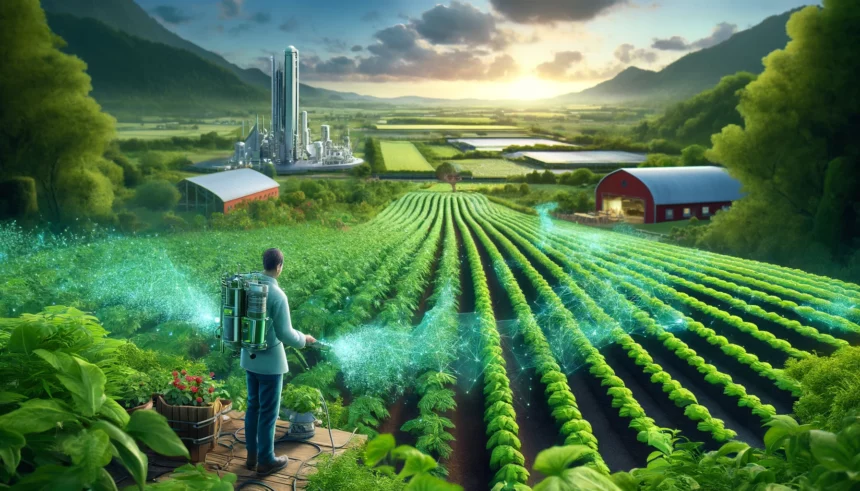Nanotechnology: A New Frontier in Agriculture
In a recent study published in Nature Nanotechnology, researchers from UC Riverside and Carnegie Mellon University propose the use of nanotechnology in agriculture to significantly enhance farming efficiency and sustainability. This cutting-edge approach could revolutionize how we meet the burgeoning global food demand.
The Promise of Precision
Juan Pablo Giraldo, an associate professor at UC Riverside and co-author of the study, points out the inefficiencies in current agricultural practices. “A substantial portion of fertilizers and pesticides never reach their intended targets, leading to significant environmental contamination,” he explains. By adopting nanotechnological strategies initially developed for medical applications, farmers can potentially target agrochemicals directly to plant cells, reducing waste and environmental impact.
Targeted Delivery Systems
The core idea is to borrow techniques from nanomedicine to create targeted delivery systems for agricultural chemicals. These systems can guide nutrients and pesticides directly to plant structures where they are most needed, which can enhance plant health and reduce the need for broad-spectrum chemical applications.
“By using nanocarriers that recognize specific plant proteins, we can direct growth enhancers, pesticides, or nutrients precisely,” says Giraldo. This approach not only increases the efficacy of these substances but also minimizes their environmental footprint.
Digital Twins in Agriculture
Another innovative approach discussed in the review involves the use of digital twins—highly detailed computational models used in medicine to simulate human responses to various treatments. “Adapting this concept to agriculture, we could design nanoparticles that optimally deliver substances to different parts of a plant,” Giraldo suggests. This method could pave the way for more resilient crops capable of withstanding harsh conditions like drought or high salinity.
Future Perspectives
Despite the promising potential of plant nanobiotechnology, the field faces technical challenges that must be addressed before these techniques can be widely adopted. However, the research team remains optimistic. “The integration of AI and advanced nanotechnology could significantly change the way we produce food, making it more sustainable and efficient,” concludes Greg Lowry, a Carnegie Mellon engineering professor and the paper’s co-corresponding author.
Read more about the challenges and advancements in nanotechnology
By embracing these advanced technologies, agriculture could undergo a significant transformation, potentially reducing its ecological footprint while increasing food production to meet future demands.
















